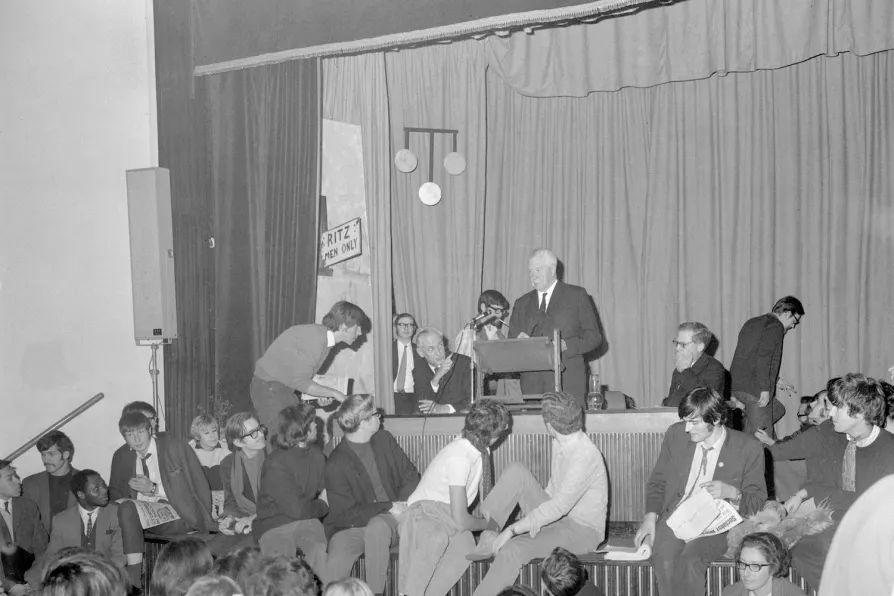Labour prospects in May elections may be irrevocably damaged by Birmingham Council’s costly refusal to settle the year-long dispute, warns STEVE WRIGHT

 Students at the London School of Economics listen to a speech from from Professor Lord Robbins, a lecturer in economics at the school. Robbins was the author of a Tory-commissioned report into access
to higher education in 1963.
Students at the London School of Economics listen to a speech from from Professor Lord Robbins, a lecturer in economics at the school. Robbins was the author of a Tory-commissioned report into access
to higher education in 1963.
EDUCATION has been a feature of the Tory leadership race. Given the age of the party’s electorate, both candidates are talking about the great grand-children of those voting.
Liz Truss has complained that the comprehensive school she went to in Leeds, Roundhay, did not provide a good education.
However she ended up at Oxford. Rishi Sunak, who went to Winchester College, a rival to Eton, has argued that universities are about “earnings potential” and the focus must be on subjects in that area.

A teaching delegation to Cuba offered IAN DUCKETT a powerful glimpse into a schooling system defined by care, creativity and the legacy of the island’s remarkable 1961 literacy campaign

NICOLA SARAH HAWKINS explains how an under-regulated introduction of AI into education is already exacerbating inequalities












